- Category
- War in Ukraine
Sexual Violence as a Tool Of Russian Warfare, From World War II to Today in Ukraine
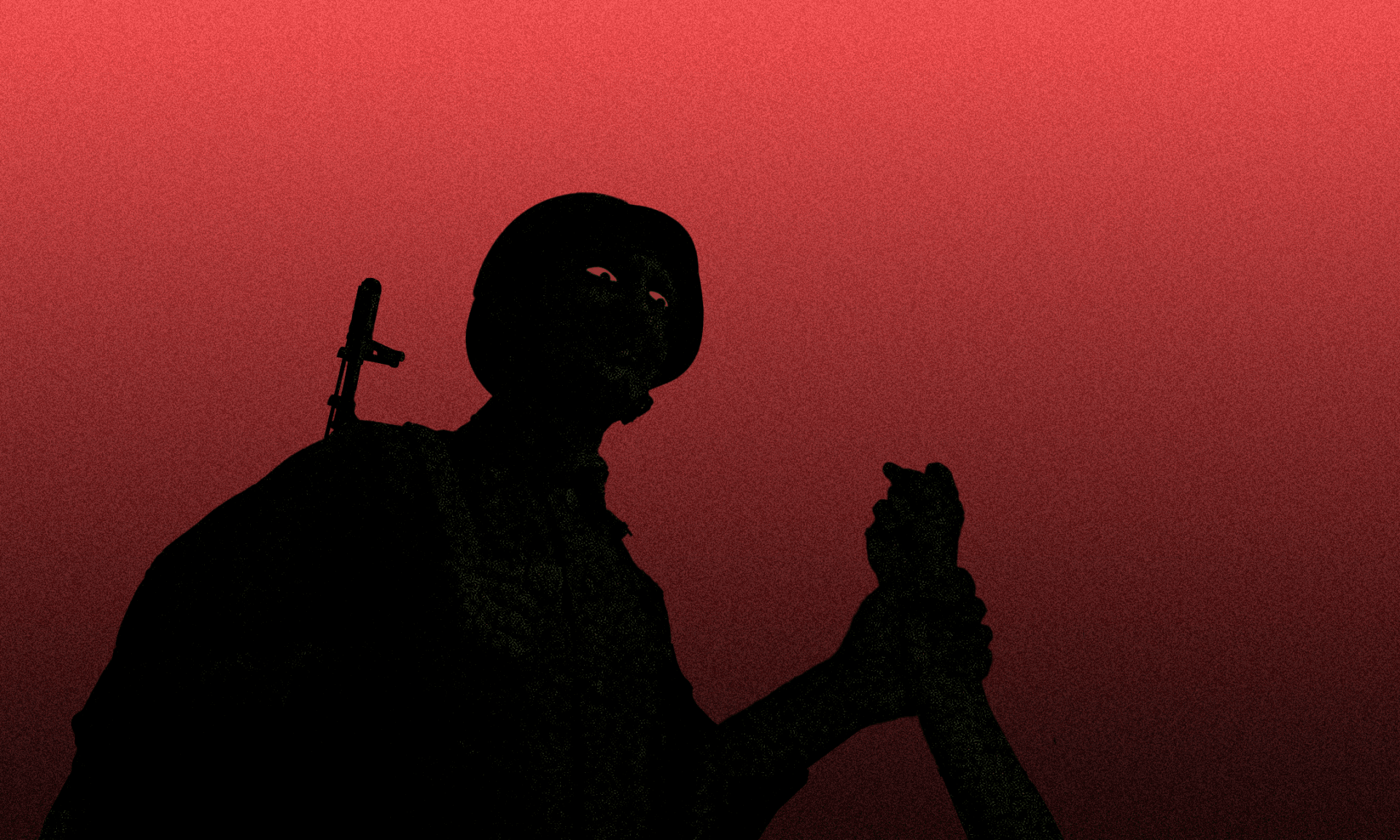
During World War II the Soviet Red Army committed the largest spate of war-related sexual violence cases in history. Rape is a widespread and systematic tool of Russian aggression, one that continues today in their war against Ukraine. Despite the overwhelming evidence, Russian authorities continue to deny these atrocities and silence those who expose them.
This article contains content that readers may find distressing*
A Russian publishing house, Eksmo, has removed the book Irena’s Children by writer Tilar Mazzeo about World War II from sale because it contains a phrase about rapes committed by Soviet soldiers, a Russian news website Meduza reported on January 11, 2025. The book was removed from stores due to the following quote :
However, the arrival of Soviet troops did not bring much joy to Poland. Only a few women in Kraków – from schoolgirls to the most ancient babcia – escaped rape.
Tilar Mazzeo
Author of Irena’s Children
Irena’s Children is a true story about Irena Sendler who took staggering risks to save 2,500 children from death and deportation in Nazi-occupied Poland. Mazzeo, a New York Times bestselling author, highlights how Sendler smuggled children in toolboxes and coffins, hid them under overcoats at checkpoints, and convinced her friends and underground resistance network to hide them from the horrors of the Holocaust. Shortly before Sendler’s death, she was awarded a Nobel Peace Prize.
In 2021, Russia adopted the criminal code. "Public dissemination of knowingly false information about the activities of the USSR during World War II and about veterans of the Great Patriotic War" was now to be equated to the rehabilitation of Nazism.
The criminal code effectively prohibits any public discussion about World War II that deviates from the position of the Russian Federation.
Women shall be especially protected against any attack on their honor, in particular against rape, enforced prostitution, or any form of indecent assault.
Geneva Convention
Cultural Front Z, a Russian public page, called on “competent authorities to pay attention” to the publisher, suggesting that this excerpt may violate the article of Russia’s Criminal Code on the rehabilitation of Nazism, reported Meduza.
Eksmo responded on its website, thanking readers “for drawing attention to a phrase in the book” and saying that it is “conducting an internal disciplinary investigation.”
Russian forces have historically committed sexual violence as a weapon of war, from World War II, and even now, during their full-scale invasion of Ukraine. Modern-day conflict-related sexual violence (CRSV) committed by Russian forces does not only affect women but many men too.
CRSV is often about “establishing ultimate domination” over enemy soldiers and their families, impacting not only the survivors of such violence but psychologically affecting loved ones around them.
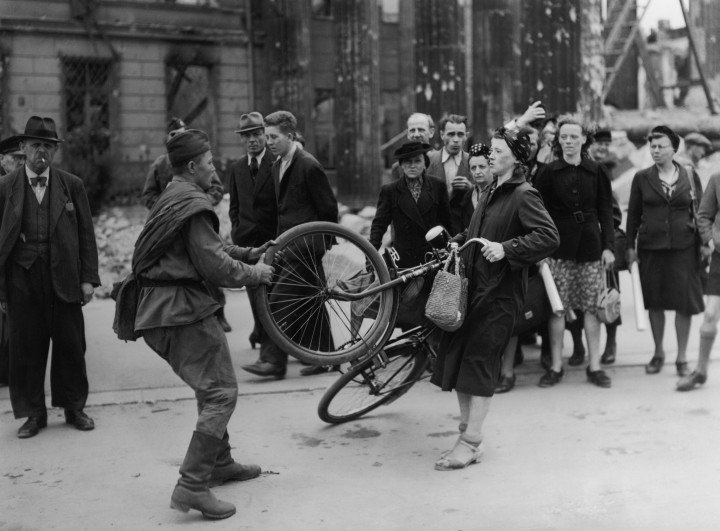
Historical sexual violence by Russian soldiers
Russia glorifies its role in the “Great Patriotic War,” defeating Nazi Germany during World War II by celebrating each year on May 9. This year, 2025, will be coined “Year of the Defender of the Fatherland in Russia” on May 9.
"We are the children, grandchildren, and great-grandchildren of the generation that defeated Nazism,” Russian leader Vladimir Putin said on December 31, 2024. “We are true to the legacy and traditions of our veterans.”
However, an unspoken result of their victory led to Soviet soldiers committing what is known as the largest incident of mass rape in history. Those who speak of these crimes are silenced, just like the recent case of Tilar Mazzeo. The so-called traditions of Soviet soldiers have been taken forward into their war in Ukraine, where Russian soldiers are also committing prevalent conflict-related sexual violence.
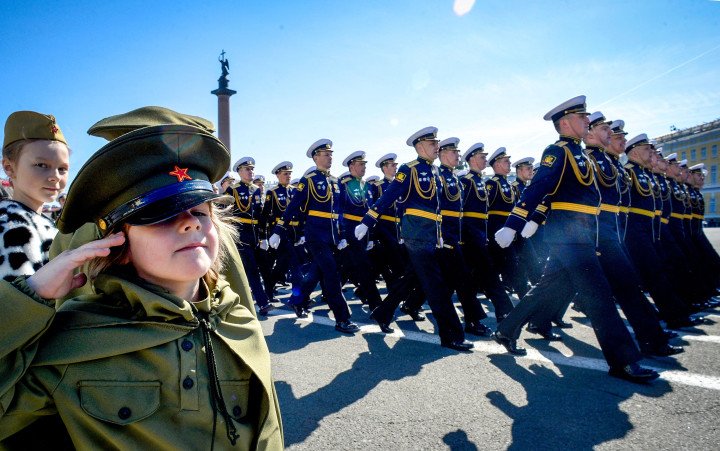
Between the months of January and August of 1945, an estimated two million German women were raped by the Soviet Red Army soldiers, Walter Zapotoczny, an American author and military historian, wrote in his book, Beyond Duty: The Reason Some Soldiers Commit Atrocities.
Researchers have suggested that over 125,000 women were raped in Berlin based on German hospital and abortion clinic records. A further 1.4 million across East Prussia, Pomerania and Silesia.
German historians believe that around 400,000 children were conceived by native German women raped by Russian soldiers. Experts like Dr. Phillip Kuwert, a senior physician at the University of Greifswald's department of psychotherapy and psychiatry estimate this number to be around 200,000.
The Russian soldiers were raping every German female from eight to eighty, it was an army of rapists.
Soviet war correspondent
Experts say that authorities were well aware of the CRSV taking place due to numerous detailed reports sent by generals. Russian General Okorokov, the chief of the political department of the 2nd Belorussian [sic] Front, opposed any tightening of discipline to prevent rape at a meeting on 6 February 1945 terming it as a “refusal to take revenge on the enemy” according to Antony Beevor, a military historian.
Beevor said that Moscow was “less worried about rape and murder than about the senseless destruction”. On February 9, 1945, Krasnaya Zvezda, the official newspaper of the Soviet Union at the time, now the official newspaper of Russia’s Ministry of Defence, reported that “every breach of military discipline only weakens the victorious Red Army [. . .] Our revenge is not blind. Our anger is not irrational,” Beevor highlighted in his research.
The Soviet authorities had a ban on diaries in the military, likely in an attempt to restrict evidence, as personal accounts are vastly the sources and evidence relied on today.
Vladimir Gelfand, a young Jewish lieutenant from central Ukraine, kept a journal that highlights some of the horrors that took place across Berlin. In it he recalls a time when he came across a group of German women, “with horror on their faces, they told me what had happened on the first night of the Red Army's arrival," he writes according to reports.
"They poked here, explained the beautiful German girl, lifting up her skirt, all night. They were old, some were covered in pimples and they all climbed on me and poked - no less than 20 men, she burst into tears.” Gelfand recalled in his journal.
"They raped my daughter in front of me, her poor mother added, and they can still come back and rape her again” he recalled.
“Red Army soldiers don't believe in 'individual liaisons' with German women,” wrote Russian playwright Zakhar Agranenko in his diary while serving as an officer of marine infantry in East Prussia. “Nine, ten, twelve men at a time—they rape them on a collective basis."
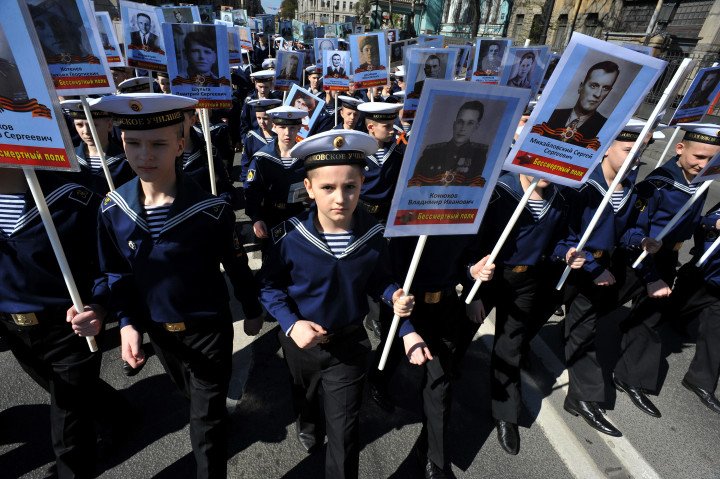
The mass rapes by the Red Army are so repressed that even today soldiers refuse to acknowledge what happened, some convincing themselves that it was their turn to suffer after what Nazi Germany’s Wehrmacht had done in Russia.
“German troops also committed a lot of rapes mainly in Eastern Europe,” Kuwert said. “There was also a lot of sexualized violence in the concentration camps.”
"Our fellows were so sex-starved that they often raped old women of sixty, seventy, or even eighty—much to these grandmothers' surprise if not downright delight”, " a Soviet major told a British journalist.
For decades survivors kept quiet about their trauma experienced at the hands of the Red Army. In 2009, a German film A Woman in Berlin and a study by the German University of Greifswald on rape victims brought new attention to the subject.
Eighty-three-year-old Ruth Schumacher told her story for the first time in 2009. She was not able to have children after she was attacked and raped by five Russian soldiers at once. “The memories come back to you over and over again; you can never forget something like that,” she says. “Sometimes after I talk about it, I sleep for a few hours and then wake up crying, screaming. You can never ever forget.”
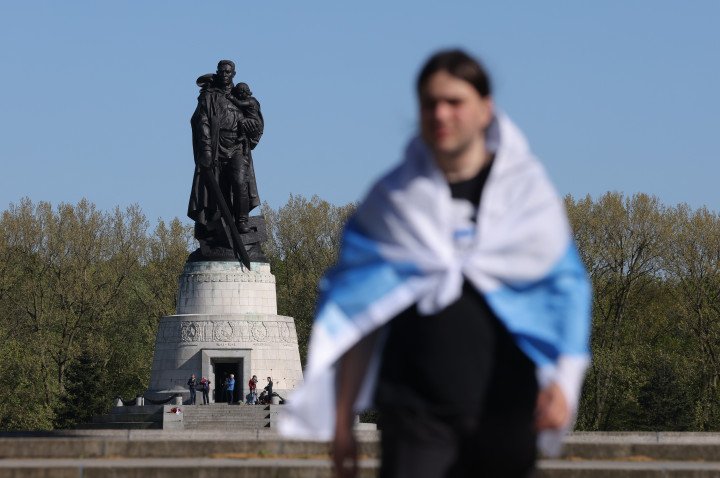
A monument 40ft high stands in Treptower Park, Berlin. It depicts a Soviet soldier grasping a sword in one hand and a small German girl in the other, and stamping on a broken swastika. An inscription on the monument states that the Soviet people saved European civilization from fascism. However, some call his memorial the “Tomb of the Unknown Rapist.”
Attitudes in Russia haven’t changed much since then. A Russian interpreter hired by the BBC in 2003 was outraged when she came across a German woman’s description of her rape by Red Army soldiers “If it’s true, then she must have wanted it‟, she commented angrily, reported Beevor.
Russian sexual violence against Ukrainians
Russian forces “are using sexual violence as a method of warfare on an unprecedented scale—in particular, to intimidate, take revenge or ‘punish’ both civilians in the occupied territories and Ukrainian prisoners of war, regardless of gender or age,” the Foreign Affairs Ministry on the International Day for the Elimination of Sexual Violence in Conflict announced on June 19, 2024.
A call between a Russian wife of a Russian soldier was intercepted by Ukraine’s Security Services (SBU) where she encouraged her husband to rape Ukrainian women, but to “use protection”. The wife is now on the international wanted list. Ukrainian journalists found the details of the wife, Olga, and her husband Roman, and called them to collect further evidence for their investigation.
Three hundred seventy-six cases of conflict-related sexual violence against civilians involving 262 men, 104 women, 10 girls, and 2 boys were committed by Russian forces between 24 February 2022 and 31 August 2024, the UN Human Rights Monitoring Mission in Ukraine reported.
The figure is highly likely to be much higher as stigma and fear of reprisals prevent survivors from seeking help. Victims are still coming forward and many more cases are likely to come to light when occupying regions are liberated and returned to Ukrainian government-controlled territories.
Ukrainian President Volodymyr Zelenskyy said that hundreds of cases of rape have been recorded, including underage girls and very young children. One Russian soldier, Alexey Bychkov, a paratrooper from Pskov, filmed himself raping a baby.
“How now will Russia’s Minister of Defense and the other authors of this ‘special operation’ evaluate its results?” Zelenskyy said in a video address to the Lithuanian Parliament. “After such crimes as this. After ‘feats’ like this one, performed by the Russian soldier Bychkov? Maybe the Russian Minister of Defense will invite Pskov paratroopers like this to protect their children and grandchildren? Is that a ‘no’, dear Minister? I'm sure he would be too scared".
Sexual-based violence is not only against civilians, but Ukrainian prisoners of war too. “Sexual violence as a form of torture has been prevalent in detention facilities held by Russian authorities, and committed as a form of torture during detention,” according to a report by the Independent International Commission of Inquiry on Ukraine. They found that sexual violence within Russian captivity is widespread and systematic.
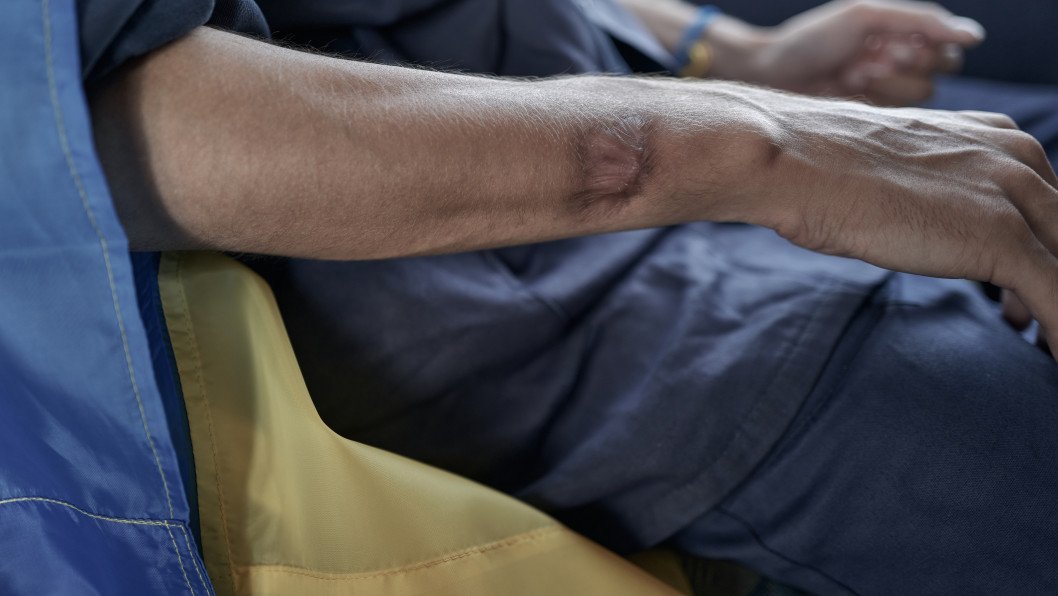
Ukrainian authorities investigated 88 CRSV cases against Russian servicemen and brought 28 cases involving 40 perpetrators to trial. Three were sentenced to 12 years in prison, and two others to 11 and 10 years, all in absentia. The other cases were pending at the time of the Human Rights report.
Antonina, a Ukrainian woman living not far from the frontline received a “disturbing message on her phone. It was a video recording of her cousin, Maksym, being brutality raped,” United Nations Population Fund (UNPF), the United Nations sexual and reproductive health agency reported.
“She was scared and didn’t know what to do,” Olena, a psychologist who later worked with Antonina told UNPF “We’ve worked with other cases where similar videos were sent, with demands or blackmail following. In this case, there was no blackmail or demands. It was simply humiliation and cruelty.”
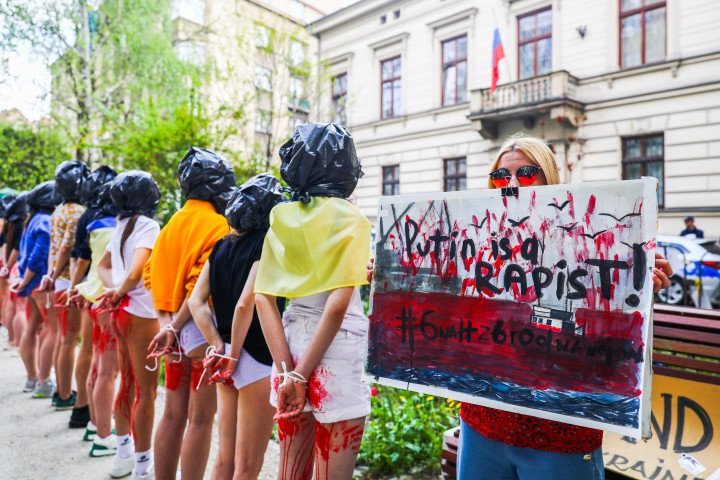
“Russian soldiers raped and committed sexual violence against women of ages ranging from 19 to 83 years,” often together with threats or commission of other violations, Ukraine Inquiry Commission Chair, Erik Møse, told the UN Council. “Frequently, family members were kept in an adjacent room, thereby forced to hear the violations taking place,” Møse said.
For every CRSV case, there are between 10 and 20 cases that go unregistered. Male survivors have especially high rates of non-reporting due to the stigma and perceived emasculation, according to UNPF.
Russia continues to use rape as a tool of war, to humiliate, intimidate, and punish. It’s also been used as a tactic of genocide, to shape the future of a country through forced impregnation. Russian CRSV is clearly systematic and often goes unpunished.
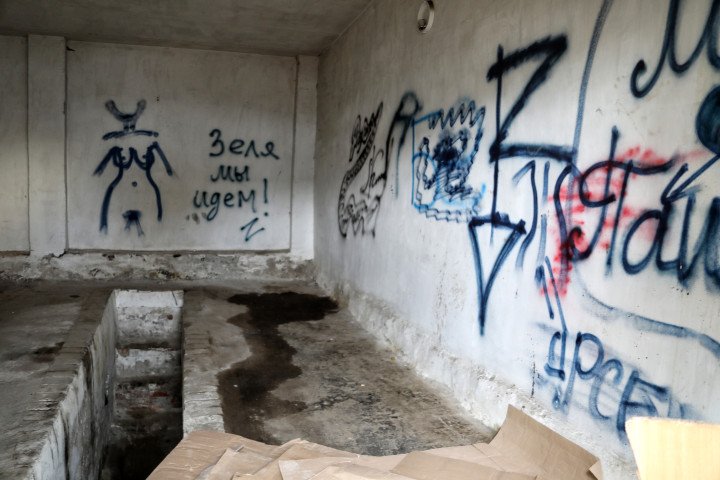
Russia denies allegations of rape and other atrocities by its soldiers in Ukraine, just as they continue to deny CRSV that occurred during World War II.
"It is a lie," Kremlin spokesman Dmitri Peskov said in response to a Ukrainian woman's account of Russian soldiers shooting her husband dead and then raping her repeatedly.
Ukrainian prosecutors established a coordination center aimed at providing war crimes survivors and witnesses, including those affected by CRSV, with psychological, social, and legal support throughout the criminal process.
Ukraine’s parliament also adopted a bill in November 2024 that codified the definition of CRSV in national legislation and established mechanisms to provide survivors with interim reparations.
-46f6afa2f66d31ff3df8ea1a8f5524ec.jpg)


-3873ac369bf1de5a48a9208e6568548e.png)


